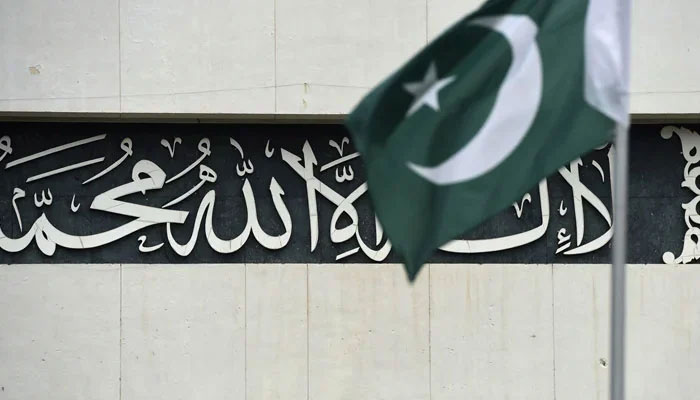Nation of optimists?
And yet, Pakistanis still managed to be happier than their neighbours
There have been some surveys that defy the headlines and show that Pakistanis are more optimistic about things than one would expect. According to the 2023 World Happiness Report, Pakistan ranked higher than India, Sri Lanka and Bangladesh in terms of happiness and came in as the happiest country in South Asia. This was when the country was racked by political instability and on the verge of default. And yet, Pakistanis still managed to be happier than their neighbours. Pakistan also came out happier than other major South Asian countries in this year’s World Happiness Report. It should be noted that this report came out in March, before the massive hikes in the power tariff of the summer and the budget that hiked taxes on the salaried class, both changes that one would expect to dampen the mood. However, it is not as though it was all plain sailing before March either; inflation was actually higher back then. Now, there is a new poll by Gallup that shows that Pakistanis are far less concerned about the growing influence of social media than most other people across the world. In the survey, on the question of whether social media has dominated people’s lives too much, 31 per cent in Pakistan responded in the affirmative.
If the opinion of Pakistanis is compared with the overall opinion obtained from 39 countries found at the global level, 50 per cent expressed concern over the increasing influence of social media on their lives. Given all the trouble that social media has been linked to in Pakistan over the past year or so, these opinions are somewhat puzzling. Social media sites like X (formerly Twitter) have fallen prey to sporadic outages and X is now all but inaccessible for most people without a VPN. This de-facto ban appears to be tied to growing concerns from the government about anti-state content being spread on social media and efforts to prohibit this content and exercise greater control over digital content. The state being so worried about online reactionary content that it is apparently willing to block out one of the largest and most important social media platforms in the world is a strong sign that social media has a powerful influence on the lives of Pakistanis.
However, most Pakistanis are of a different mind. This might have something to do with the fact that digital access is still new. According to the Digital Development Index report released in April, over half of the country’s population still does not have internet access. Pakistanis might also not have the kinds of high hopes that people in a country rising as fast as India, leading to less frustration and disappointment. If anything, this goes to show that public sentiment is an unreliable indicator of the conditions of a country and one is better off looking at more concrete measures.
-
 Prince William, Kate Middleton Private Time At Posh French Location Laid Bare
Prince William, Kate Middleton Private Time At Posh French Location Laid Bare -
 Stefon Diggs Family Explained: How Many Children The Patriots Star Has And With Whom
Stefon Diggs Family Explained: How Many Children The Patriots Star Has And With Whom -
 Shamed Andrew ‘mental State’ Under Scrutiny Amid Difficult Time
Shamed Andrew ‘mental State’ Under Scrutiny Amid Difficult Time -
 ‘Narcissist’ Andrew Still Feels ‘invincible’ After Exile
‘Narcissist’ Andrew Still Feels ‘invincible’ After Exile -
 Bad Bunny's Super Bowl Halftime Show: What Time Will He Perform Tonight?
Bad Bunny's Super Bowl Halftime Show: What Time Will He Perform Tonight? -
 Where Is Super Bowl 2026 Taking Place? Everything To Know About The NFL Showdown
Where Is Super Bowl 2026 Taking Place? Everything To Know About The NFL Showdown -
 Chris Pratt Explains Why He And Katherine Schwarzenegger Did Premarital Counseling
Chris Pratt Explains Why He And Katherine Schwarzenegger Did Premarital Counseling -
 Drake 'turns Down' Chance To Hit Back At Kendrick Lamar At Super Bowl
Drake 'turns Down' Chance To Hit Back At Kendrick Lamar At Super Bowl -
 Sarah Ferguson Had A ‘psychosexual Network’ With Jeffrey Epstein
Sarah Ferguson Had A ‘psychosexual Network’ With Jeffrey Epstein -
 Miranda Kerr Shares The One Wellness Practice She Does With Her Kids
Miranda Kerr Shares The One Wellness Practice She Does With Her Kids -
 Czech Republic Supports Social Media Ban For Under-15
Czech Republic Supports Social Media Ban For Under-15 -
 Khloe Kardashian Shares How She And Her Sisters Handle Money Between Themselves
Khloe Kardashian Shares How She And Her Sisters Handle Money Between Themselves -
 Prince William Ready To End 'shielding' Of ‘disgraced’ Andrew Amid Epstein Scandal
Prince William Ready To End 'shielding' Of ‘disgraced’ Andrew Amid Epstein Scandal -
 Chris Hemsworth Hailed By Halle Berry For Sweet Gesture
Chris Hemsworth Hailed By Halle Berry For Sweet Gesture -
 Blac Chyna Reveals Her New Approach To Love, Healing After Recent Heartbreak
Blac Chyna Reveals Her New Approach To Love, Healing After Recent Heartbreak -
 Royal Family's Approach To Deal With Andrew Finally Revealed
Royal Family's Approach To Deal With Andrew Finally Revealed




